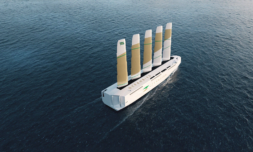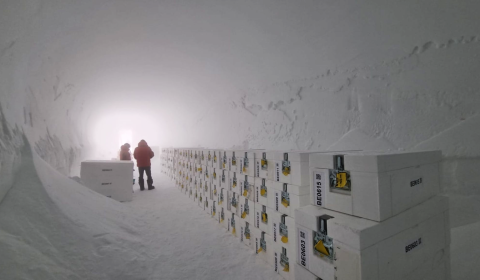The biggest ever AI-powered autonomous vessel is set to traverse the Atlantic to gather vital oceanic research on microplastics.
Marking the 400th anniversary of the Mayflower launch in 1620, computing conglomerate IBM and non-profit research firm ProMare have unveiled their autonomous vessel of the same name. Without so much as a pilgrim on board this time around, 2020’s 15-meter trimaran is officially the biggest captainless ship on record.
Just last week we reported on Oceanbird, the Swedish sailing ship cleaning up the maritime industry with its eco-friendly carrier reducing emissions of towing vessels by up to 90%. The Mayflower, however, is more concerned with gathering vital data on climate change, analysing microplastics, and detecting the presence of marine wildlife.
Following a similar route to its historic predecessor, the Mayflower will attempt a trans-Atlantic crossing from Plymouth to Cape Cod in Spring 2021 for its first voyage. Utilising solar and wind power to run all systems, the aerodynamic aluminium vessel will employ cloud-based AI programming to detect and react to potential hazards also relaying its position to other ships. Travelling at speeds of up to 20 knots (23mph), the debut expedition is estimated to take around two to three weeks to complete, depending on weather conditions.



















